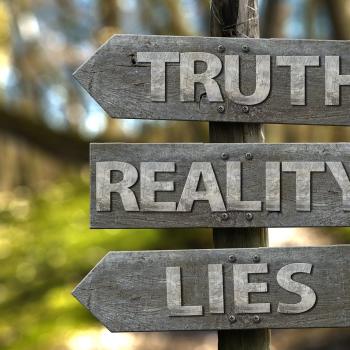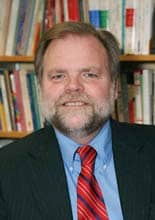Live as children of light . . . Sleeper, awake. Rise from the dead, and Christ will shine on you. ~ Ephesians 5: 8, 14
This week's Lenten practice involves claiming the healing light of God. In John 9, a man blind from birth follows Jesus' directions and miraculously regains his sight. His healing leads to controversy with the religious leaders, who cannot believe that such healing can possibly occur. But, the man persists in his affirmation, "I am the man . . . Jesus made the mud, spread it on my eyes, and said to me, 'Go to Siloam and wash.' Then I went and washed and received my sight." I am the man and I went!
His affirmative response is a far cry from the man with paralysis at the pool, who was cured after a lifetime of waiting (Jn. 5:1-18). When the religious leaders challenge his carrying a mat on the Sabbath, he places the blame on Jesus, "The man who made me well said to me, 'Take up your mat and walk.'" Just a few minutes before, when Jesus asked him, "Do you want to be made well?" he gave reasons—or perhaps excuses—for his plight, rather than declaring his desire for a healing. Put in this context, Jesus' strange words to him make psychological sense: "See, you have been made well. Do not sin again, so that nothing worse happens to you!" This sounds like a threat, connecting sin, punishment, and healing. But, I believe that it is about agency. The man at the pool had become passive, expecting others' efforts to heal him, rather than claiming his own role in the healing process. Jesus may be telling him that healing isn't easy, in fact, it's hard won, and if he doesn't claim his healing day by day, he may end up back at the pool again!
The sight-impaired man described in John 9 trusts Jesus, but he claims his role in the healing process. He claims his partnership with God: yes, Jesus healed me and I can see, but I was the one who chose to go to the pool, and I am the one who was healed, and you can't get me to say otherwise.
During Lent, we reflect on our brokenness, on the places in our lives where we need healing, and this can be painful. The challenges of mind, body, spirit, and relationships we face can seem insurmountable. Their chronic nature often stands in the way of claiming another, more joyful and healthy way of life. While healing is a process, and never fully completed, the story of the sight-impaired mind challenges us to say "yes" to God's healing invitation and work day by day to move toward God's healing light.
There are many ways to do this, and frankly I am learning them as I go along. I need God's healing to claim my strength and initiative, my power as God's beloved child, and to let go of the fear and anxiety that often clouds the most beautiful day. What I am doing to claim my role as God's partner in the healing process is, first of all, to pray for the healing I need. No need is too large or small for God's healing love. Sometimes I simply say, "God I am afraid of the future" or "I am worried about not being about to find a new position" or "I am nervous about finances" or "Help me trust my gifts" or simply "Help me." Rather than hiding from my wounds, I bring them prayerfully to light.
Second, I claim a healing affirmation to transform my mind and perspective on my life. I particularly like the following affirmations:
- Nothing can separate me from the love of God.
- I can do all things with Christ who strengthens me.
- The good work God has begun in my life, God will bring to completion, a harvest of righteousness.
- My God will supply all my needs.
- God is with me in every situation.
- I am strong in the Lord.
- God wants me to have abundant life.
I repeat these affirmations—and return to them when I'm troubled—not to deny my need of healing or my fears, but to place them in the context of God's vision for my life and the reality of God's love and resourcefulness. I repeat them to claim my agency and role in the healing process, my own and the community's.
Third, in the spirit of the Celtic caim, or encircling, I draw a circle around myself, prayerfully claiming that I am safe in God's care, regardless of the future. Wherever I am and whatever happens here, I am in God's circle of love—forever!
Finally, I claim my partnership in the healing process by choosing to be responsible for my life. I am not all-powerful, but I have enough agency to make a difference to my life and the lives of others. I claim my agency by prayerfully listening for God's call and then responding as best I can.
There are no guarantees, but when we claim God's healing light, small miracles happen: we discover our inner power, our lives change, we are less fearful, and we take the first steps that will lead to personal, professional, and relational transformation.
In conclusion, it goes without saying that claiming God's healing light is a corporate journey. We can't do it alone; we need God's presence in the healing Christ, and we also may need colleagues who support our healing and personal agency, spiritual direction, counseling, and medication. God is at work in every healing path, and asking for help is part of our own personal agency in the healing process.
3/29/2011 4:00:00 AM





